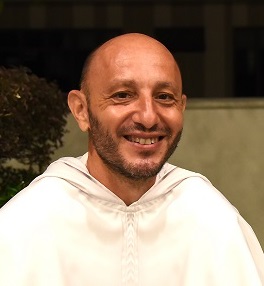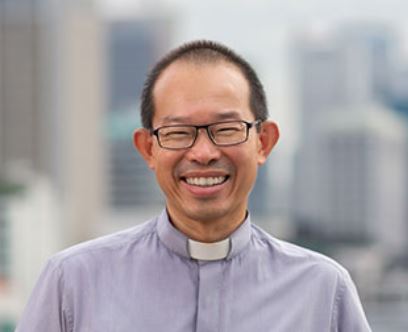Telling others about Jesus
In this article in the Extraordinary Mission Month series, Fr Kenson Koh shares how we can put our faith into practice and evangelise in Singapore – simply by telling stories.

Evangelising can be as simple as chatting with friends or sharing with non-Christian family members.
Photo: VITA Images.
The mission of the Catholic Church has remained the same – to make Jesus and His message about the Kingdom of God known to all peoples. One effective method for us today is to narrate the story of Jesus, just as the Gospels do.
Think about your own life. There are stories there. At a talk I attended years ago, Cardinal Luis Antonio Tagle of Manila said that life is “unimaginable without stories”, yet, while telling stories seems natural, “we do not reflect sufficiently on its significance for our lives”.
Let me share his eight principles behind evangelising using stories.
1. Good stories are based on experiences.
The Last Supper was a very profound event for the Apostles, who later narrated how Jesus broke bread. The Church tells the story of Jesus every time we celebrate the Eucharist or read the Scriptures. We continue to tell and hear stories of God’s relationship with humanity today.
2. The Church’s identity among the poor is manifested by the story of Jesus.
We may have few people in Singapore who are materially poor, but many are poor in other ways – spiritually, emotionally or socially – and do not know how to seek help. Our faith stories will come from this context.
3.The Church keeps the memory of Jesus dynamically alive.
In the Eucharistic Prayers, the priest represents on the altar the sacrifice of Jesus – not just by reading dead words on a page, but by acting it out in worship. Furthermore at the end of Mass, the priest says, “Go”, urging us to continue Jesus’ mission in our secular world.
4. The story of Jesus provides meaning to the Church’s symbols of faith.
This is usually done through art, such as images or icons. One well-loved image is the Good Shepherd who lays down His life for His flock.
5. The story of Jesus helps the Church grow, and forms community.
I am currently parish priest of the Church of the Nativity of the Blessed Virgin Mary, one of the oldest churches in Singapore. The second and third generations of parishioners are still telling stories of the first generation, things that their grandparents told them.
These may not be their own experiences, but they have been handed down because these events shaped their community. Retelling them reinforces community.
6. A listening Church tells the story of Jesus.
Storytelling is not a monologue but a dialogue – we listen to God in the context of our surroundings. Today, there is a lot of noise and information overload. Do people pay attention, or is it just in one ear and out the other? If we truly listen, it can transform us by prompting us to reflect on how we can become better people.
7. The story of Jesus is told in a multiplicity of ways.
It is told particularly through the Mass. But we also tell this story through our hospitals, schools, orphanages and homes for the poor and abandoned around the world. We bring across the story of Jesus both in what we say and do.
8. The Church is the voice of suppressed stories.
Where stories are suppressed because of exploitation, violence, political oppression, social stigma or the fear of being judged, the Church speaks up for the victims. For example, for persons struggling with same sex attraction, we must hate the sin but love the sinner. Their struggles form part of their identity.
Telling your story of Jesus
Many of us already evangelise through the way we live and communicate with our friends. It can be as simple as chatting with friends, or sharing with our non Christian family members, or in a formal class like this. So go forth and tell the story of Jesus!
This is the second article based on the three-part series of talks by Fr Kenson Koh, held by ONE prior to Extraordinary Mission Month (October 2019) to mark the centenary of Pope Benedict XV’s encyclical Maximum Ilud.


 Clarice Chan, Chairwoman, Original Minds Group
Clarice Chan, Chairwoman, Original Minds Group










 Producer-Presenter, CatholicSG Radio
Producer-Presenter, CatholicSG Radio